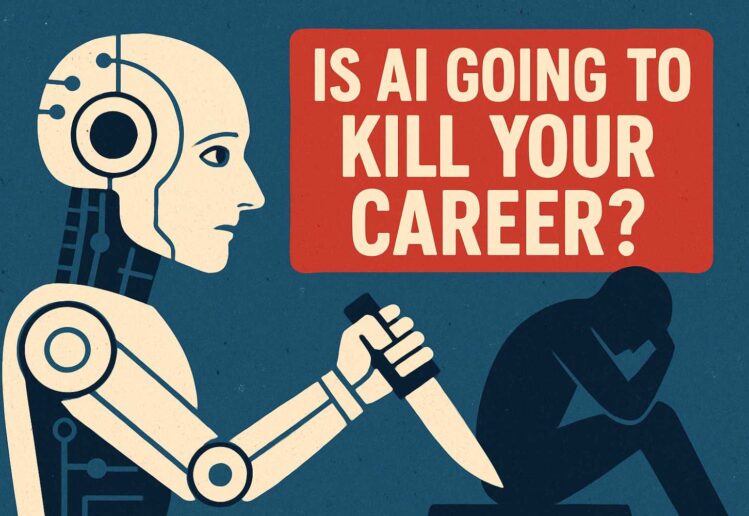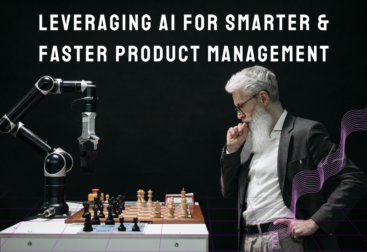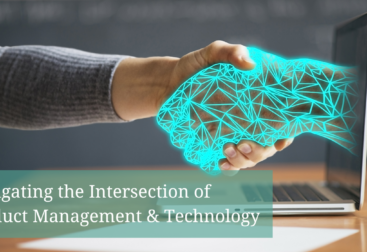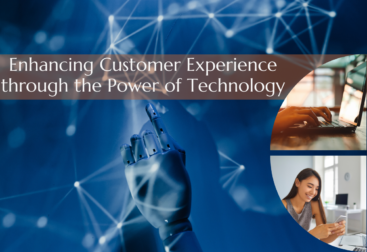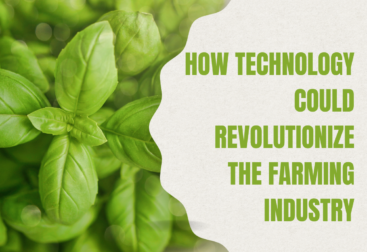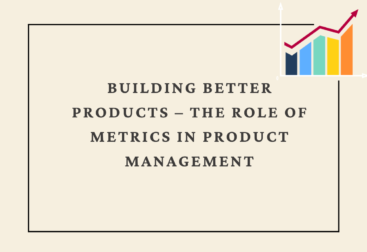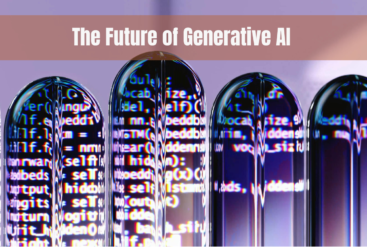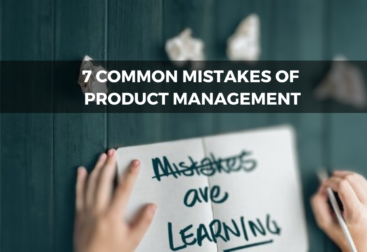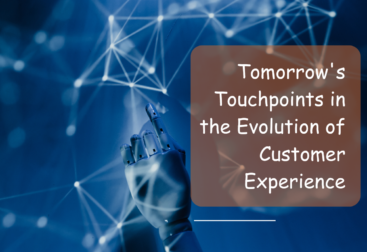Artificial Intelligence (AI) has evolved from a distant futuristic concept into an integral part of modern life. As we step further into the 2020s, this transformative technology is reshaping industries, redefining roles, and even sparking existential concerns among professionals. Will AI be the catalyst for career obsolescence, or can it coexist and complement human work? To answer this, we need to delve deeper into how AI might shape the future of employment, what it could mean for job security, and how professionals can adapt to thrive alongside it.
The Promise of AI – Efficiency & Innovation
AI is not inherently designed to eliminate human jobs; rather, it is programmed to augment human capabilities. AI systems analyze data, automate repetitive tasks, and offer predictive insights, all of which can significantly boost productivity. In industries such as healthcare, AI-driven diagnostic tools help physicians detect diseases earlier and with greater accuracy. In finance, AI algorithms streamline investment strategies and fraud detection. The pattern is clear: AI often complements and enhances human intelligence, rather than replacing it outright.
A Look at Jobs Under Threat
While AI has the potential to elevate many roles, it’s undeniable that some jobs will become obsolete. Low-skill, repetitive jobs are particularly at risk. Roles in data entry, basic customer service, and simple manufacturing are among those most vulnerable to automation. A 2024 report by the World Economic Forum projects that by 2030, nearly 20% of current jobs could be displaced by AI and automation technologies.
Jobs AI Is Likely to Replace
- Data Entry Clerks: With advances in natural language processing (NLP) & optical character recognition (OCR), AI can accurately input, organize, and manage data without human intervention.
- Basic Customer Support: Chatbots & AI-driven customer service agents now handle basic inquiries 24/7, offering consistent responses that reduce the need for entry-level support roles.
- Routine Manufacturing: Robots equipped with AI already excel at tasks that require precision and speed on the assembly line.
Jobs Safe (or Enhanced) by AI
Despite fears, there are many career paths that AI cannot easily replicate:
- Creative Professions: Fields like writing, design, and art rely on uniquely human skills such as imagination, emotion, and subjective judgment. While AI tools can assist with inspiration and drafts, human input is essential for genuine creativity.
- Strategic Decision-Making: Managers and executives who craft strategies and make complex decisions based on nuanced understanding and interpersonal skills are irreplaceable. AI might supply data and scenarios, but leadership requires human insight.
- Skilled Trades: Professions such as electricians, plumbers, and HVAC specialists are rooted in hands-on expertise and require adaptation to unpredictable situations. AI cannot replicate this adaptive skill set.
Industries Transformed by AI
Several industries are on the brink of being dramatically transformed by AI:
- Healthcare: AI-driven diagnostic tools and robotic-assisted surgery will not replace doctors but will support them in making better decisions and improving patient outcomes.
- Education: AI is starting to personalize learning by adapting educational materials to individual learning styles. While teachers remain essential for fostering creativity and social skills, AI can enhance their teaching tools.
- Marketing & Sales: AI helps analyze consumer data to predict trends and tailor marketing strategies. It won’t replace marketers but will make campaigns more targeted and data-driven.
The Emergence of New Career Paths
As AI reshapes the job market, new careers are emerging. Future-proof roles often focus on the development, management, and ethical use of AI:
- AI Ethicists: Professionals in this field ensure that AI algorithms adhere to ethical guidelines, promoting fairness and preventing discrimination.
- Data Analysts: With AI generating massive volumes of data, skilled data analysts are required to interpret and extract actionable insights from this information.
- AI Trainers: AI still relies on human input for training and supervision. Trainers help machines learn nuanced tasks, making them more accurate and effective.
The Skills of the Future
Adaptation is the key to surviving in an AI-driven job market. Here are essential skills that will remain valuable:
- Emotional Intelligence (EQ): The ability to understand and manage emotions, facilitate team cooperation, and maintain client relationships will be invaluable.
- Complex Problem Solving: AI may provide data and recommendations, but humans excel at solving ambiguous, complex problems that require creative thinking.
- Lifelong Learning: With technology evolving rapidly, continuous learning and upskilling will be necessary. Professionals who embrace a mindset of growth and education will stay ahead.
Will AI Replace Humans, or Will It Work Alongside Us?
The prevailing narrative that AI will eradicate jobs is only part of the story. While some positions will inevitably be automated, the majority will evolve. Human-AI collaboration is a powerful combination that can lead to greater innovation, efficiency, and productivity. AI systems are tools—albeit highly sophisticated ones—that rely on human oversight, creativity, and intuition to function at their best.
For example, in the creative industry, generative AI models can create basic content drafts or generate design ideas, freeing up human creators to focus on more impactful work. Similarly, AI can automate routine legal research, enabling lawyers to spend more time building compelling cases and interacting with clients.
Preparing for an AI-Dominated Future
To safeguard one’s career in an AI-augmented future, it’s essential to embrace both hard and soft skills:
- Technical Skills: Familiarity with AI technologies, programming languages, or data analysis tools can provide a competitive edge.
- Adaptability: Professionals who are flexible and open to learning new technologies and methods will adapt better to changing job landscapes.
- Collaboration: Working effectively with AI tools requires understanding how to leverage them for maximum benefit, which often involves cross-disciplinary collaboration.
Governments and educational institutions must play their part as well. Policies that promote reskilling programs, STEM education, and public awareness about the impact of AI on various professions can create a more resilient workforce.
The Future of Job Satisfaction
While AI can handle data processing and repetitive tasks, it cannot replicate the satisfaction derived from meaningful work. The future workplace will emphasize tasks that demand emotional intelligence, creativity, and strategic thinking. These are areas where human beings excel and AI struggles.
For instance, healthcare professionals may use AI to improve diagnosis speed and accuracy but will still need to apply empathy and interpersonal communication during patient interactions. Similarly, teachers will continue to shape minds with wisdom, patience, and inspiration, tasks that no AI algorithm can mimic.
My Thoughts – Embracing AI as an Ally
AI is neither inherently a career killer nor a panacea for job creation. It is a technology that, like the internet or the assembly line before it, will reshape the world of work. The key is to view AI as an ally—an enhancement rather than an end.
To remain competitive and relevant, professionals must focus on what makes them uniquely human. Skills such as creativity, strategic thinking, and emotional intelligence will not only persist but become more valued in an AI-driven world. By embracing adaptability and continuous learning, the future of work with AI will be one of partnership rather than rivalry.
In this evolving landscape, the real question isn’t “Will AI kill your career?” but rather “How can you evolve to thrive alongside AI?” The answer lies in adopting a proactive approach to change, seeking continuous growth, and understanding that while AI is a powerful tool, humanity’s career will always rest on uniquely human abilities that no algorithm can replicate.

